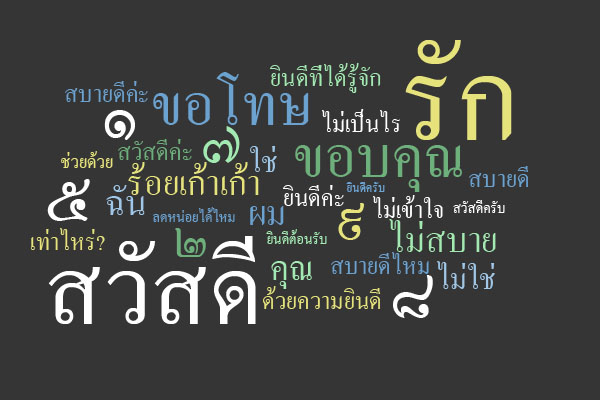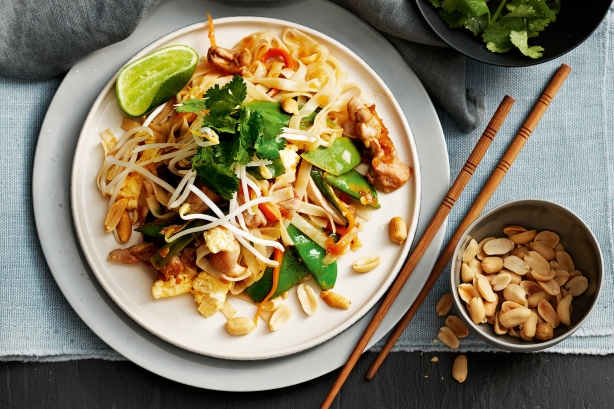
by James | Jun 16, 2015 | Bangkok News
Thailand is a country located at South East Asia. Thailand has majestic mountains, beautiful beaches, historic temples and fascinating culture. Thailand’s status as a country is going good so far because of the economic boost coming from import and export sector and also from the tourism industry. Thailand’s economy started improving since 1970’s. Hence improving all the citizens of Thailand and that includes the educational system. Due to fast globalization parents realized that education is important for everybody. Thailand school has been one of the priorities of the kingdom of Thailand since the beginning.
In Thailand formal education was done on Temple schools. According to historians Thailand’s earliest form of education started when the Thai Alphabet was invented by the King Ram Khamhaeng the Great during the Sukhothai period. Evolution of the formal education was slow because Thailand has never been colonized by the westerners. The development of Thailand educational system and schools was a long process, each reign of a new King has a development. Education before is only for boys and the elite family.
Thailand school modernize during the bloodless revolution that made the reigning King transfer its power to the democratic Government and that led to the expansion of Thailand schools and the first National education scheme was introduced that means that no matter what is your status, gender and social background you can have a formal education.
Education is important in every citizen in Thailand and it is the Government’s responsibility to give it to its citizen through the Ministry of Education that means that the Basic education is given by Thailand Government for free. In Thailand it will take 16 years to finish your education from primary to tertiary. Thailand’s educational system will start from the primary education, middle education, secondary education, vocational and the tertiary level. Because of the improved educational system and good economy many International Schools was established in the country and the response of the people was good and the enrollment rate is high, as of now there are about 90 International Schools that offers International Curriculum.
Thailand school is not complete without a teacher. Teachers in Thailand schools passed through vigorous and years of studies to complete a bachelor’s degree and they need to pass series of trainings to be able to start teaching. The problem is there is a shortage of teachers on public schools, the rooms are overcrowded because of large number of students and the new teachers opted in to work in a private school for good pay.
All private schools and public schools are regulated by the ministry of education. Education in Thailand is important nowadays and they give importance and give equal opportunities for its citizen. Education system in Thailand is effective because of the big number of student participation and increasing number of graduates per year.
Education is important to every country and to all human kind, it is our right to have a formal education. No matter how good the teacher is, no matter how effective the educational system; if the student is not motivated to learn and has no interest he/she will not learn. Everything you need to know, everything you need to learn is on your Thailand School.

by James | May 13, 2015 | Bangkok News
Bangkok the capital city of Thailand, the top destination for tourists all over the world, and one of the most populated place in Thailand. Bangkok’s economy is going stronger. Because Bangkok has been the top destination for foreigners Bangkok language School industry has grown to keep up the demand of English speakers and foreigners that want to learn the Thai language.
Bangkok Language schools don’t only concentrate on teaching Thai and English some also offer French, Japanese, Mandarin and many others. As of now there’s an added service that you can get from enrolling in Bangkok language schools and that is the Educational visa or student Visa. The purpose of this visa for the person to gain entry in Thailand for educational purposes.
Bangkok language school is all over the place to offer their service especially for foreigners that wish to learn the Thai language. If you wish to enroll in a language school first thing you must ask yourself is why, why do you want to learn Thai? Is it because for Business, communication for daily living if you are planning to be an expat or for your lover so there will be no communication barrier.
Taking up a Thai course in Bangkok language school you must also consider your time of stay, So you can choose which course you will take Beginner, intermediate or advance. The course would take as long as 3 months to 1 year. And of course there are crash courses available for tourist that would only take 3 hours to learn the Basic.
Choosing the right Language school in Bangkok is a little bit hard because there are a lot to choose from, stay away from the fly by night language schools that doesn’t have any permits. Choose the one that is approved by the Ministry of Education. Take in consideration of their Schedule if it suits you if not you can opt in for private classes, you can let your tutor go to your place or do it online via Skype. Check also their mode of teaching, all of the language schools in Bangkok are claiming to have the best method of teaching but the question is; is it effective on you. Almost all Language schools in Bangkok offer 1 week trial you can enroll in the trial to check for yourself. One more thing to consider are the fees, Language schools in Bangkok are somewhat costly. You can go online and compare the fees of other school I’m sure it can help you out.
Bangkok Language schools are helping their own country in terms of revenues also it gave jobs to locals not only for the locals but also for the foreigners. Bangkok attracts more foreigners for English teaching job. There are a lot of locals who also teach English but the thing is students prefer their teacher to be white. If you are a foreigner that teaches English in Bangkok language schools the salary varies from 25,000 Baht to 35,000 Baht for low end schools and for International Schools and Universities Salary could go up to 60,000 Baht to 100,000 Baht. Just to let you know local English teachers are paid less, it’s about 50% less from the salary of a foreign English teacher. Being an English teacher in Bangkok is not easy you have pass some criteria and it’s a must to have a teaching certification.
No matter what’s you’re reason in looking for a Bangkok Language School would it be for taking a Thai class or for an English teaching job; I’m sure you will love your stay in Bangkok because of the people and the beautiful culture.

by James | Apr 26, 2015 | Bangkok News
The Thai language is the national and official language of Thailand and the mother tongue of the Thai people, Thailand’s dominant ethnic group. The Tai-Kadai languages are thought to have originated in what is now southern China. It is a tonal and analytic language. The combination of tonality, a complex orthography, relational markers and a distinctive phonology can make Thai difficult to learn for those who do not already speak a related language.
If you want to study Thai and become proficient in the language you don’t have to go to Thailand to learn there are a lot of options for you; Online courses, Language schools and books. Just choose the method which fits most for you and for your lifestyle.
How long it takes to learn Thai really depends on your effort but even just a small amount of effort every day will help you become fluent. In fact by just devoting one hour a day to your Thai study you will be surprise how much progress you can make. Also motivation has a big role in learning the Thai language, ask yourself why you want to learn Thai, motivating yourself every day will come a long way.
Learning Thai is not that difficult in fact it is not necessary to be really clever to be able to speak Thai, if you are interested and motivated then you will be successful in learning the language.
There are 3 guiding components in learning the Thai language; learn the vocabulary, learn to read and learn to write.
In leaning the vocabulary it’s not a need to have an awesome memory. Thai language has its own script with 44 consonant letters, 15 vowel symbols that combine into at least 28 vowel forms, four tone diacritics, and an own set of numerals. Don’t learn any random words learn the words that can help you on your daily life.
Reading Thai is important in learning the language the reason is Thai has many different sounds that our mouths are not used to. Before you can speak properly we need to understand how to make each sound correctly. There are also 5 different tones used in the Thai Language and if you can’t make those 5 sounds properly you won’t ever be able to speak Thai clearly. Learn the Thai alphabet make sure the pronunciation is correct it will help you learn Thai faster.
Learning to write in Thai is difficult the shapes to remember are more complex than the English letters, what I suggest investing in an alphabet stencil and practicing it daily will do the trick.
I’ll share you some tips on how you can learn Thai faster.
– Find a conversation partner
– Listen and watch Thai videos
– Interact with Thais on social media
– Expect that every interaction with a Thai is an opportunity to improve
– Write things down in Thai,
– Make flash cards and keep them in pockets to read
Almost all of us have difficulties in learning a new language. Just put in mind the reason why you are learning the language. Don’t pressure yourself; in the early stages of learning you will encounter a lot of mistakes but it will not hinder you in learning Thai language instead it will lead you in mastering the language. Good luck!

by James | Apr 6, 2015 | Bangkok News
Learning a foreign language has many advantages. As far as the business community is concerned, it helps to expand business activity in a foreign country. For people seeking employment abroad, it helps gain jobs. But, the question is where to learn a foreign language? Should you learn it in your home country or in the country where it is spoken as the official language?
Some people call this a vexed question, but in reality the question is not vexed because the answer is simple. You should always learn a language in its native country. Of course, there are several institutions or even universities that can teach you a foreign language in your home country, but the native country always remains the preference. There are several reasons for this and it can be summarized as follows.
The Standard:
Most languages of the world have many dialects spoken in different geographical regions. There are dialects for official use and for everyday use. The standard dialect is always spoken in the native country. The other varieties are diluted versions and often show the influence of other languages. Learning a language in the native country will help you learn the authentic variety.
Learn the Culture:
Language learning is closely tied to culture. Experts are of the opinion that if you understand the culture of any country, it helps you understand the hidden meaning of some of the expressions used in the written or spoken language. By going to the native country, you get closer to the local people and that is a wonderful opportunity to understand their culture. If you are a businessman, it also helps you to promote your business interest in that country.
Repetitive lessons:
Language is a performative. A lot of things that you don’t learn in class you learn by your interactions with others. When you stay in a country where the language you are learning is the official language, you will interact with your classmates and friends. It is needless to say you will have a wonderful opportunity to discuss your lessons with your friends. Not only this, you will get an opportunity to interact with other native speakers such as when you eat at a restaurant or when you go shopping. This way your learning of the language, is not restricted to the class hours. Thus, you can master the communicative aspects of the language and not just grammatical.
Learn the proper accent:
In any language accent plays a crucial role. When you interact with other students, you will certainly learn the proper accent and if you go wrong, your friends will take pains to correct you. Therefore, you will master the spoken language. It is needless to say that once you master the skill of spoken language, you will also be able to communicate effectively in the written form.
As a result of all this, you will take less time to learn the language and you show greater chances of achieving the required proficiency both in written and spoken language. Naturally, this will affect your communication skills.
As you know, Bangkok is a wonderful place and it is blessed with entertaining weather and you will have every facility required for a comfortable stay. The educational institutions there are adequately equipped to provide the required amount of training so that you learn the Thai language and gain mastery over it. So, if you want to learn Thai, learn Thai in Bangkok.

by James | Jan 31, 2015 | Bangkok News
Pad Thai, also called phat thai, is a tasty and popular stir-fried rice noodle dish made with ingredients like soaked dried rice noodles, eggs, tofu, shrimp, garlic, tamarind pulp, fish sauce, shallots and palm sugar, and sometimes vegetables like bean sprouts, pickled radishes or turnips, and meat like chicken or crab.

While it has the word “Thai” in its name, this iconic dish didn’t actually originate in Thailand. It is thought that these noodles came from either Vietnam or China and were introduced into Thailand in the 1940s or 1950s during the time that Plaek Phibunsongkram was the prime minister of the country, in an effort to Westernize and modernize his country of Thailand.
The full name of the Pad Thai is actually kway teow pad Thai, which shows the Chinese origin since “kway teow” means rice noodles in Chinese. So, the full name plainly means ‘Thai-style stir-fried noodles.’ Usually, if a food has a name like that with its country’s name, it means it didn’t come from that place originally. This also shows Pad Thai is not native to Thailand. Even so, it has since been linked to Thailand and will forever be one of the foods that both foreigners and natives love to eat.
Very Nutritious, Inexpensive Dish
Even though the preparation of this dish is similar to that of what came from China, the flavors and spices in Pad Thai are pure Thailand and it started being very popular in the timeframe during World War II. Since then, it has become one of the country’s national dishes. It is fast, nutritious, and beloved by nationals and foreigners alike who come to Thailand.
 In fact, part of the reason for its popularity is that it is inexpensive, filling and considered as a perfect nutritious meal. It is sold all over Thailand and made with many different ingredients of vegetables, meats, other proteins, spices and more and sold in everything from street markets to fancy restaurants in one form or another. It can be made vegetarian too by leaving out the proteins or meats, so the choices are almost endless.
In fact, part of the reason for its popularity is that it is inexpensive, filling and considered as a perfect nutritious meal. It is sold all over Thailand and made with many different ingredients of vegetables, meats, other proteins, spices and more and sold in everything from street markets to fancy restaurants in one form or another. It can be made vegetarian too by leaving out the proteins or meats, so the choices are almost endless.
It is thought to have both helped to modernize the country, as well as provide an inexpensive and nutritious dish during a trying timeframe in the world and could be considered Thailand’s first example of fast food for the public. Pad Thai combines the four cornerstones of Thai food: hot, sweet, sour, and salty. It is so versatile that just about everyone can find a form of Pad Thai to love, which is another reason it is so popular.
All in all, Pad Thai may be an “adopted” food into the Thai culture, but since then they have made it their own and it is forever associated with Thailand and its people. So, if you want some Pad Thai, come to Thailand to experience the true flavors of this iconic and tasty dish consisting of rice noodles fried with all kinds of veggies, meats, proteins and spices.







Recent Comments